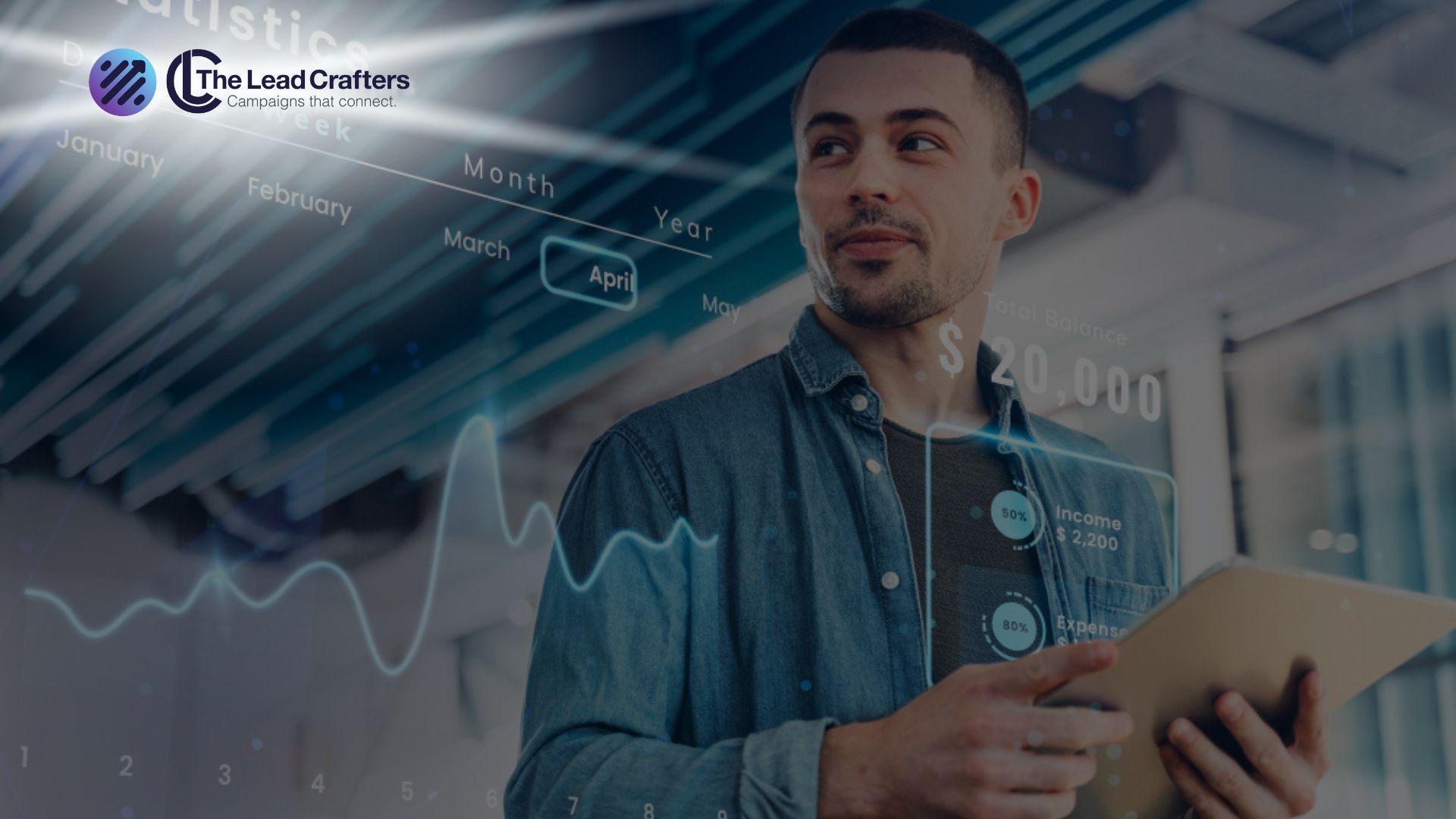In today’s hyper-competitive B2B landscape, businesses must do more than generate leads—they need qualified, sales-ready leads at scale. The traditional lead generation tactics, while still useful, often fall short when it comes to real-time insights, personalization, and automation. This is where AI-powered lead generation tools come into play, helping marketers and sales teams uncover high-intent prospects faster and more efficiently.
In this article, we explore how AI tools can supercharge your lead generation process, improve conversion rates, and drive better ROI for your B2B campaigns.
What is AI in Lead Generation?
Artificial Intelligence (AI) in lead generation refers to the use of machine learning algorithms, natural language processing (NLP), and data analytics to automate and optimize the process of identifying, nurturing, and converting leads.
AI enhances lead gen by:
- Predicting buying intent
- Automating email personalization
- Scoring leads based on engagement
- Chatbot-driven interactions
- Delivering real-time insights from massive data sets
The result? Smarter targeting, faster conversions, and reduced manual effort.
Key Benefits of Using AI for Lead Generation
1. Better Lead Scoring
AI evaluates behavioral patterns, past interactions, firmographics, and psychographics to assign more accurate lead scores. This helps your sales team focus on the highest-value prospects.
2. Hyper-Personalization at Scale
AI-powered tools like ChatGPT and Jasper can generate personalized emails, subject lines, and landing page content tailored to individual users—without requiring manual input for each lead.
3. Real-Time Data Processing
Unlike static CRMs or spreadsheets, AI tools analyze real-time user activity, website visits, and engagement metrics to deliver timely insights on lead intent.
4. Faster Response Times
With AI-powered chatbots or conversational AI, businesses can engage with leads instantly—answering queries, booking demos, or qualifying them without human delay.
5. Cost Efficiency
By automating repetitive tasks and refining targeting, AI minimizes ad waste, reduces CAC (Customer Acquisition Cost), and ensures budget efficiency.
Top AI Tools Transforming B2B Lead Generation
Here are some AI-driven tools that can be integrated into your B2B lead generation tech stack:
1. ZoomInfo + Chorus
- Combines AI-powered data enrichment and sales intelligence.
- Helps identify decision-makers, predict buying signals, and personalize outreach.
2. Drift
- Uses conversational AI to automate chatbot interactions and qualify leads in real time.
- Can book meetings, direct traffic, and guide prospects through your funnel 24/7.
3. Exceed.ai
- An AI sales assistant that handles conversations via email and chat to qualify leads and schedule meetings.
4. Leadfeeder
- AI-based IP tracking software that identifies companies visiting your website, even if they don’t fill out a form.
5. Seventh Sense
- Optimizes email send times for each lead using AI, boosting open rates and engagement.
6. Apollo.io
- Uses AI-driven prospecting tools to find leads based on advanced filters and engagement data.
💡 Tip: The LeadCrafters can help you integrate and maximize ROI from tools like these with a tailored demand generation strategy.
Explore Our B2B Services
How to Integrate AI into Your Lead Gen Process
Implementing AI in lead generation doesn’t require a complete overhaul—just the right strategy and tools. Here’s a step-by-step breakdown:
1. Define Your Goals
Are you trying to increase MQLs, shorten the sales cycle, or improve email engagement? AI is most effective when aligned with specific KPIs.
2. Audit Your Current Stack
Evaluate your CRM, marketing automation platform, and existing workflows to identify where AI can add value (e.g., email sequencing, chatbot automation, lead scoring).
3. Implement AI-Driven Tools
Start small with one or two tools (e.g., Drift for chat, Seventh Sense for email timing) and track their impact.
4. Train Your Teams
AI tools aren’t “set and forget.” Sales and marketing teams need to understand how to interpret AI-driven insights and incorporate them into decision-making.
5. Measure and Optimize
Track metrics like conversion rate, lead-to-demo ratio, and cost-per-lead (CPL) to ensure your AI investment is paying off.
Common Mistakes to Avoid When Using AI for Leads
Even the best tools can fail without the right strategy. Here are common pitfalls to avoid:
❌ Over-Reliance on Automation
AI should enhance—not replace—human judgment. Personalized follow-ups and relationship-building are still essential.
❌ Poor Data Hygiene
AI is only as good as the data you feed it. Incomplete, outdated, or siloed data leads to inaccurate targeting and wasted spend.
❌ Ignoring GDPR and Privacy Laws
Ensure your AI tools are compliant with data privacy regulations, especially if you’re collecting or enriching lead data.
❌ No Integration with CRM
AI tools must sync with your CRM or marketing automation platform (e.g., HubSpot, Salesforce) to create a seamless workflow.
Case Study: AI-Driven Lead Generation Success
Client: Mid-Sized SaaS Company
Challenge: Low conversion rates from inbound leads and slow sales cycles.
Solution by The LeadCrafters:
- Implemented AI chatbots to qualify leads in real-time.
- Integrated predictive lead scoring with CRM.
- Used intent data and AI content generation for email nurturing.
Results:
- 38% increase in MQL-to-SQL conversion rate
- 2x faster lead qualification
- 22% lower cost-per-lead in 3 months
Want similar results? Let’s Talk Strategy
Conclusion
AI is no longer a futuristic concept—it’s a practical, powerful ally in modern lead generation. From smarter prospecting to personalized nurturing and real-time qualification, AI tools help B2B businesses generate higher quality leads at lower costs and faster speed.
Whether you’re a startup or an enterprise, embracing AI in your lead gen strategy isn’t just an advantage—it’s a necessity.



